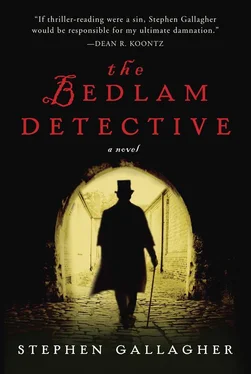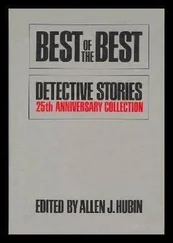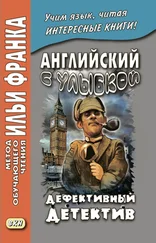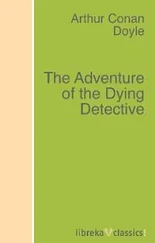Stephen Gallagher - The Bedlam Detective
Здесь есть возможность читать онлайн «Stephen Gallagher - The Bedlam Detective» весь текст электронной книги совершенно бесплатно (целиком полную версию без сокращений). В некоторых случаях можно слушать аудио, скачать через торрент в формате fb2 и присутствует краткое содержание. Жанр: Исторический детектив, на английском языке. Описание произведения, (предисловие) а так же отзывы посетителей доступны на портале библиотеки ЛибКат.
- Название:The Bedlam Detective
- Автор:
- Жанр:
- Год:неизвестен
- ISBN:нет данных
- Рейтинг книги:5 / 5. Голосов: 1
-
Избранное:Добавить в избранное
- Отзывы:
-
Ваша оценка:
- 100
- 1
- 2
- 3
- 4
- 5
The Bedlam Detective: краткое содержание, описание и аннотация
Предлагаем к чтению аннотацию, описание, краткое содержание или предисловие (зависит от того, что написал сам автор книги «The Bedlam Detective»). Если вы не нашли необходимую информацию о книге — напишите в комментариях, мы постараемся отыскать её.
The Bedlam Detective — читать онлайн бесплатно полную книгу (весь текст) целиком
Ниже представлен текст книги, разбитый по страницам. Система сохранения места последней прочитанной страницы, позволяет с удобством читать онлайн бесплатно книгу «The Bedlam Detective», без необходимости каждый раз заново искать на чём Вы остановились. Поставьте закладку, и сможете в любой момент перейти на страницу, на которой закончили чтение.
Интервал:
Закладка:
Sebastian said, “I don’t have an answer for you. But let me take the machine.”
“What machine?”
“The camera, if it won’t be missed for a few hours. I think I may know where to track down someone with the expertise we need.”
SIXTEEN
The names of the houses always charmed her. They hadn’t when she’d lived here, but they charmed her whenever she returned. Prospect Place. St Cuthbert’s. Puffin. St Elmo’s. Evangeline was a city dweller now, a grown woman, and these names were her childhood. She wished that she could revisit them with simple pleasure. But between her childhood and the present stood a short passageway of lost time, where there was only uncertainty and pain. Something within her, some natural custodian whose name she did not know, had elected to close the door on that darkness.
As a result, she remembered nothing of her lowest hour. It was an act of consideration that she had not consciously authorized and did not appreciate. In speaking of the doctor, Stephen Reed had avoided mention of any results of the doctor’s examination. Perhaps the doctor had been discreet in his notes. For that, at least, she could be grateful.
As she climbed the last few yards, the sun broke out for a moment. She remembered the summers here. They were endless. And summer society was always strictly divided according to class, position, and propriety. A widow and a widow’s child had never quite fitted in. Which had brought freedom, of a kind. Her friendship with Grace Eccles would have been impossible otherwise.
Here was her mother’s house. Right up at the back of town with steps up to the front door, a view mostly of rooftops, and a side garden that was just about big enough to put a shed on. The brickwork was neat and the paintwork was green. Lydia paid a man to keep it spruced, every other year. The front door was a heavy showpiece with two panels of etched glass like a funeral parlor or a public house, and was rarely used. Evangeline let herself through the side gate and entered through the kitchen door, which, as ever, was unlocked.
Lydia Bancroft’s supper place was laid on the table, ready for her return. Supper for one. The house was silent, and Evangeline felt like an intruder.
But when she took her weekend bag up to her old room, she was surprised to find the bed already made up, and with fresh-smelling linen. She’d given her mother no warning of this visit, so Evangeline could only conclude that this was how she always kept it.
She laid out her nightdress on the bed, but otherwise she didn’t unpack. She went downstairs and out to the garden shed, which was no more secure than the house; its door didn’t even have a lock, but a small toggle of wood that turned on the frame to hold it.
From out of the shed, she wheeled her bicycle.
She hadn’t ridden it in two years, but her mother made occasional use of it, so its condition was good. The tires were soft but the chain ran freely, and a drop of oil and a minute’s work with the air pump had it ready for the road. She never rode in London, but back when she’d lived here she’d cycled everywhere. Evangeline was even adept at cycling in a skirt. Being neither rich nor eccentric, she owned none of the “rational cycling wear” that tended to draw ridicule onto women in public places.
When she set off down the hill, she wobbled a little at first; but within a minute she had the hang of it again and was soon sailing along.
If her mother had been surprised to have her turn up unannounced, imagine how Grace would feel.
On hearing where Sebastian wanted to go, Sir Owain’s driver said, “But that’s thirty miles from here!”
“Twenty-five,” Sebastian said. “I just measured it on the map.”
“I have other duties than this,” the driver protested, but Sebastian was firm.
“As I recall it, the offer of the car was for anywhere I may wish to go.”
The driver conceded, but did nothing to disguise his displeasure. He went to get behind the wheel, and this time Sebastian had to open the passenger door for himself.
Once inside, Sebastian set the camera down on the seat beside him. The car had been fully cleaned up now, and the broken window given a running repair with a sheet of thick parchment. It was opaque, but it let in some light while keeping the wind out.
These were country lanes, but a good part of the route would be along the Bristol road. When they’d left Arnmouth behind, he slid open the window that divided the passenger cab from the driver’s position.
Leaning forward and raising his voice almost to a shout to be heard, he said, “I fear we got off on the wrong foot, you and I.”
“Did we, now,” the driver replied without emotion. In his cap and goggles, facing forward in a scarf wound tight against the oncoming weather, he had the advantage over Sebastian, whose face was up against the little window with his eyes already beginning to stream in the rush of air.
Sebastian said, “I believe the fault is mine. It’s easy to mistake loyalty for obstinacy. How long have you worked for Sir Owain?”
The driver took a while to respond. And then all that he said was, “Long enough.”
“He said those girls were torn by beasts. What do you think?”
“I wouldn’t know,” the driver said. “I didn’t see them. I stayed outside with the car.” He glanced at Sebastian. “I take it they were bad.”
“Torn by beasts or not. Someone meant to spoil them.”
They passed over the bridge across the railway line. The estuary was behind them now. Beyond the station stood a hill dense with trees.
Sebastian said, “What’s your name, driver?”
“Thomas Arnot, sir.”
“Forgive me for the way I spoke to you before.”
This belated touch of civility, along with mention of the suffering of the victims, seemed to temper the driver’s attitude.
The man said, “If you want to talk about beasts, go to the post office and ask them to show you the book.”
“The what?”
“The book where all the holiday people write down their stories of what they see on the moor.”
“Are you joshing me?”
“No, sir, I am not. And I’m not claiming there’s any truth in any of it, neither. I’ve never seen any such thing myself. But there’s been many a sighting over the years. For all I know, there could be something in it. Some animal escaped from somewhere, going back to the wild. Strange things brought home from faraway places. It’s not always peacocks and monkeys.”
Sebastian was inclined to dismiss it. He’d seen the results of animal attacks. But before he could say so, the driver suddenly said, “Is that why we’re going to the fairground? To see if anything’s escaped from their menagerie?”
And his manner was so changed, now that he saw himself included in the thinking behind the plan, that Sebastian chose not to contradict him.
“Something like that,” he said.
Then he closed the dividing window and sank back into the leather seat, steadying his mind for the drive ahead.
Evangeline was passing the upturned boats by the estuary. Out in the sand and the mud, a solitary rotted wooden post stood firm, worn down to a stump of two or three feet. A tangle of old ropes and knots festooned it like a merman’s necklace. Even farther out, rising from the water, was a dune topped with a memorial cross. A chapel had stood there once, she’d been told, until floods and the shifting river had cut it off from the town.
There was another mile to go. She’d have to keep an eye on the time, or risk returning across the moor as night fell.
In the days following their misadventure, the newspapers had reported that she and Grace had been found safe and well the next morning, none the worse for their outdoor ordeal. But many details had been suppressed in the retelling. All that Evangeline knew was that she and Grace had actually been found terrified and shivering, with most of the clothes ripped from them. And this was knowledge that she’d gleaned from the questions she’d been asked; she had no direct memory of it herself. Her closest memory was of lying in her bed while adults talked downstairs.
Читать дальшеИнтервал:
Закладка:
Похожие книги на «The Bedlam Detective»
Представляем Вашему вниманию похожие книги на «The Bedlam Detective» списком для выбора. Мы отобрали схожую по названию и смыслу литературу в надежде предоставить читателям больше вариантов отыскать новые, интересные, ещё непрочитанные произведения.
Обсуждение, отзывы о книге «The Bedlam Detective» и просто собственные мнения читателей. Оставьте ваши комментарии, напишите, что Вы думаете о произведении, его смысле или главных героях. Укажите что конкретно понравилось, а что нет, и почему Вы так считаете.












